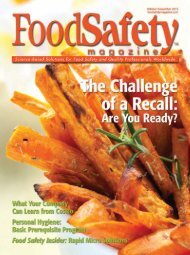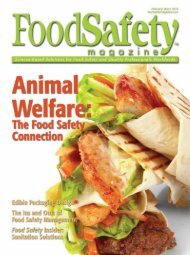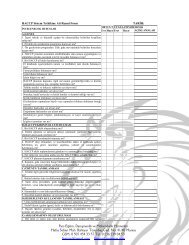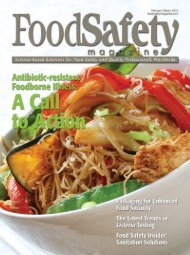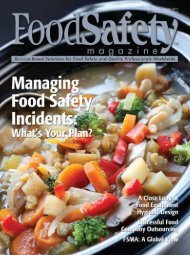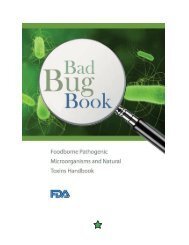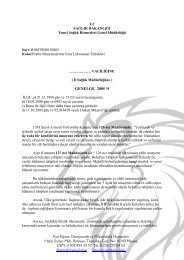Food Safety Magazine - June/July 2013
Food Safety Magazine - June/July 2013
Food Safety Magazine - June/July 2013
You also want an ePaper? Increase the reach of your titles
YUMPU automatically turns print PDFs into web optimized ePapers that Google loves.
REGULATIONS<br />
By Sonali Gunawardhana and James N. Czaban<br />
What FSMA Really Tells Us<br />
about the Focus of <strong>Food</strong> <strong>Safety</strong><br />
The passage of the <strong>Food</strong> <strong>Safety</strong> Modernization<br />
Act (FSMA) marked a historic revolution in<br />
U.S. food safety laws. Both the law, and the<br />
U.S. <strong>Food</strong> and Drug Administration’s (FDA)<br />
recently published proposed regulations, make<br />
very clear that the focus of food safety will<br />
shift away from federal regulators responding<br />
to unpredictable incidences of contamination to a system<br />
whereby both domestic and international food producers are<br />
required to take specific proactive steps and assume primary<br />
responsibility for producing safe food. FDA’s Deputy Commissioner<br />
for <strong>Food</strong>s Michael R. Taylor recently outlined<br />
FDA’s strategy to implement FSMA as follows:<br />
Stated in the simplest terms, the recognized solution to the problem<br />
of foodborne illness is a comprehensive prevention strategy that<br />
involves all participants in the food system, domestic and foreign,<br />
doing their part to minimize the likelihood of harmful contamination.<br />
And that is the strategy mandated by FSMA. It is not a strategy that<br />
assumes we can achieve a zero-risk food supply, but it is a strategy<br />
grounded in the conviction that we can better protect consumers and<br />
FDA’s new food<br />
safety message to<br />
industry: the buck<br />
stops here<br />
the economic vigor of the food system if everyone<br />
involved implements reasonably available measures<br />
to reduce risk.<br />
The FSMA strategy recognizes that the food<br />
industry has the primary responsibility and capacity<br />
to produce safe food, but it calls for a new<br />
definition of public and private roles on food safety<br />
and a modern new framework for regulatory oversight, integration of<br />
government food safety efforts, and public-private collaboration. 1<br />
FSMA requires FDA to implement many rules and regulations<br />
on various effective dates and implementation schedules.<br />
FDA’s initial implementation of rules governing expanded<br />
records access, reinspection and recall fees, as well as food<br />
facility registration guidelines, has now given food manufacturers<br />
their first taste of the potentially costly and burdensome<br />
new FDA food safety scheme.<br />
We address below the key provisions of FSMA, FDA’s<br />
initial interpretations and implementation strategies for those<br />
provisions and how they differ from prior requirements under<br />
the federal <strong>Food</strong>, Drug & Cosmetic Act (FD&C), all with an<br />
52 F o o d S a f e t y M a g a z i n e




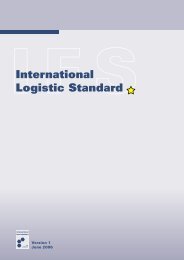

![Otomatik indirilmez ise tıklayınız [Download]](https://img.yumpu.com/44170525/1/190x190/otomatik-indirilmez-ise-taklayanaz-download.jpg?quality=85)
